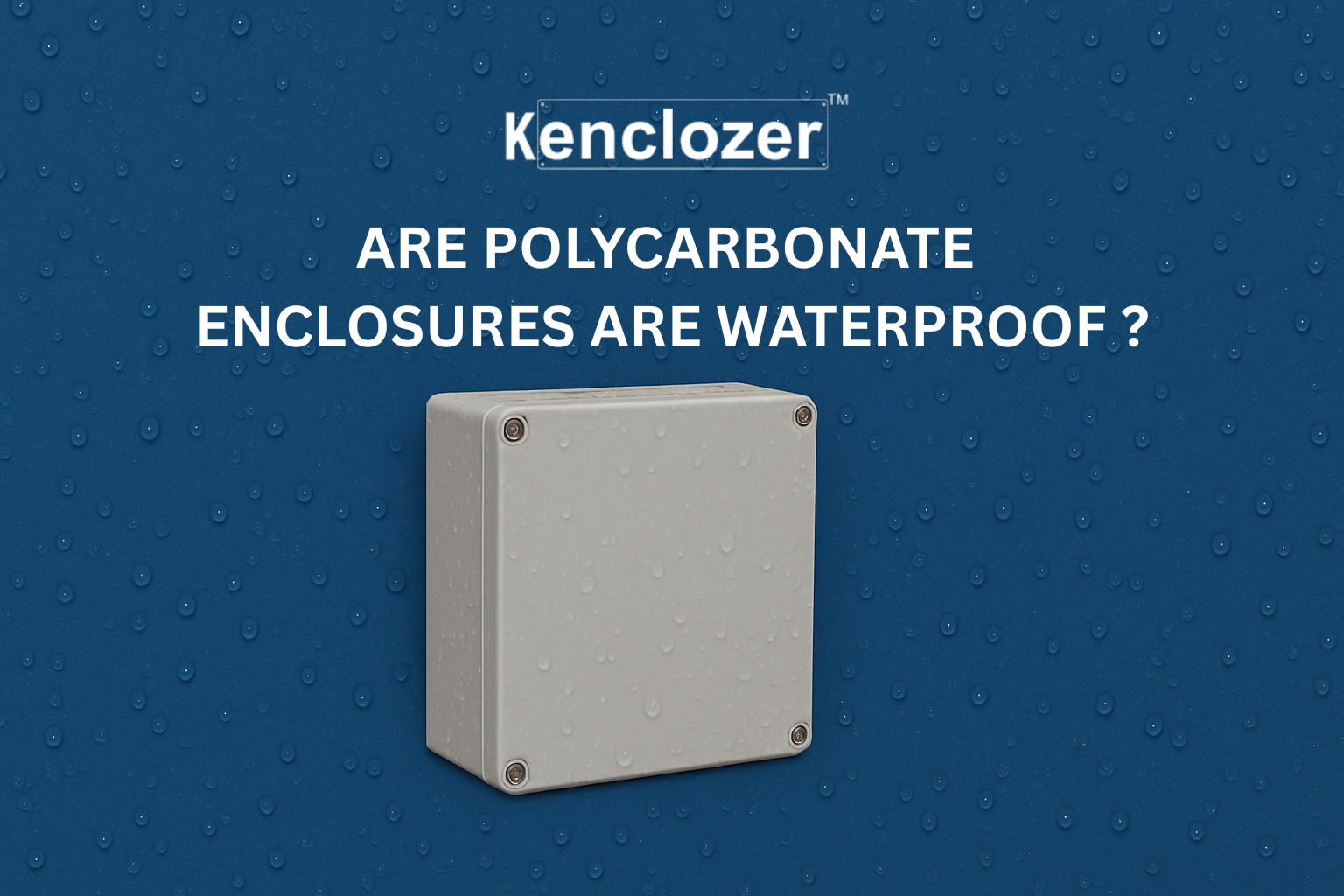Are Polycarbonate Enclosures Waterproof?
In current electrical and electronic installations, enclosures are very important in holding internal parts in various potential dangers to such elements as dust, impacts, UV radiations, and most importantly moisture and water ingress.

Polycarbonate is one of the recommended materials to be used in making enclosures especially because of its excellent mechanical and other environmental protection features.
Nevertheless, the most common issue people would like to voice in connection to this problem concerns the following question:
Are polycarbonate enclosures water proof?
Now, let us take a closer look into why polycarbonate enclosures are dependable in the wet scenarios, and indeed, they are waterproof.
What Does "Waterproof" Really Mean?
Without prior discussion on what waterproof means in the industrial context of it all, we must first evaluate polycarbonate enclosures. The term waterproof is typically characterized by Ingress Protection (IP) ratings, and, in specific, the second digit:
- IP65: Water jet guarded
- IP66: Water jets are not harmful
- IP67: Temporarily immersion protected
- IP68: Prohibited against extended periods of pressure-resistant immersion
The ratings denote the capability of an enclosure in keeping water out.
Are Polycarbonate Enclosures Actually Waterproof?
Short Answer:
Well, yes it is possible to have a waterproof polycarbonate enclosure but it depends upon the design and IP rating.
Detailed Answer:
Polycarbonate as a material is also a non-porous thermoplastic material, which means it does not allow the water to percolate through. However, sealing is not all about the material of the enclosure, it is also based on the sealing system, gasket design, fastening mechanism and precision of the manufacturing material.
Majority of good quality polycarbonate enclosures are provided with gaskets injection molded into them and are IP-classified (usually between IP65 and IP68). This implies that they will resist rain, splash, water jets and even short term or even long immersion depending on the rating.
Where Are Waterproof Polycarbonate Enclosures Used?
Waterproof polycarbonate enclosures find very common application outdoors and in harsh surroundings as follows:
- Solar panel junction boxes
- Outdoor communication systems
- Marine and dockside control units
- Agricultural field sensors
- Water treatment plants
- Underground cabling systems
- Street lighting control
Benefits of Waterproof Polycarbonate Enclosures
| Feature | Benefit |
|---|---|
| IP65-IP68 Rated | Excellent protection against water ingress |
| UV-Resistant | Suitable for outdoor environments |
| Lightweight but Strong | Easy to install and durable |
| Rust-Free | Will not corrode like metal |
| Transparent Option | Easier to inspect internal components |
| Affordable | Cost-effective compared to stainless steel |
FAQs:
- Gasket is still intact and is sealed well
- A tight screw down is placed upon the lid
- There are no holes or fitting which are not sealed (IP-rated cable glands)
Conclusion
Well designed and high IP rated polycarbonate enclosures will definitely have waterproof capabilities. They are light weight, corrosion free and economical means of application in areas where moisture or direct involvement with water is a factor. If you are putting up a solar PV system, or even outdoor controls, it is beneficial that you use polycarbonate enclosures all to have your components inside safe against water damages.